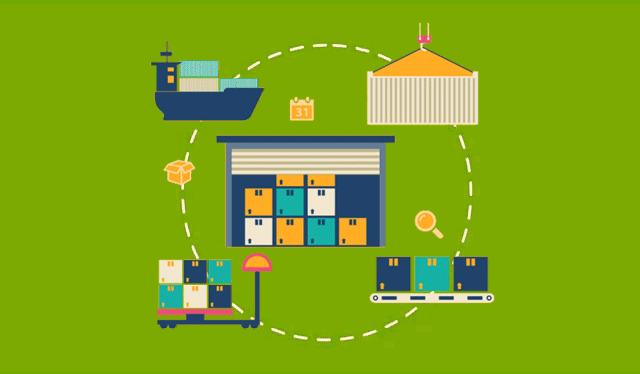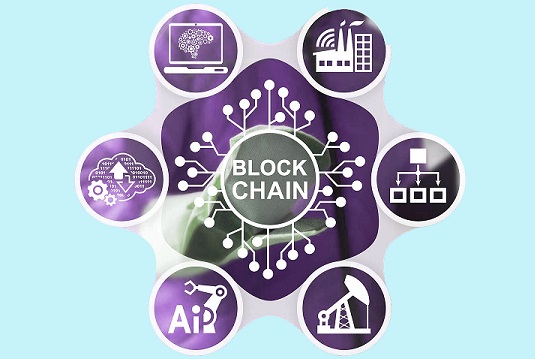Supply chain management has become a global phenomenon for every industry. Because every company has to handle its goods even if it has nothing to do with manufacturing or retail. Handling logistics is a big responsibility any organization or institute whether it is a company, hospital, college etc. As we are advancing towards digital revolution, things are becoming more complex and it is very important to handle goods and inventory with a robust software. It is because there are many things involved in the movement of a single thing. However, technology is giving the answer to all kinds of complexities that we are seeing.
Blockchain has emerged as a technology which gives answer to all problems that come forth in supply chain. Before we make foray into the association of supply chain and blockchain, let’s see what makes supply chain vulnerable.
Table of Contents
What is the loophole in Supply Chain?
Currently, supply chain management gets broken in many pieces. Many years ago, when trades took place locally, it could be also handled easily as well. As we are racing towards a global economy, things are getting complex. Now, transnational imports and exports are getting bigger than the domestic trade. There many types of taxes and duties which make their way in complicating the situation even further.
After World War II, many pacts were signed among nations, trade among countries became a new way of strengthening relations. Then the rise arose for better management of these dearly goods which come to us through different modes of transport such as water, air or railways.
With the growing complexity in the process, it has become very difficult to control the cost for end-users. Going through multiple channels of transport, goods are saddled with many charges which results in increasing their face value.
At the end, it has to be borne by the consumer of the good and that’s where the problem lies. There is a significant lack of transparency as well. Noone gets to knows about the original state of product was when it was being packed. The quality may have got deteriorated, but you still have to pay a hefty price laden with taxes.
How does blockchain fix all the issues in supply chain?
Most of the people think of cryptocurrency when it comes to blockchain technology. Technically, the decentralized distributed ledger can be implemented in many other ways in various industries. The open-source mechanism and integration of smart contract makes this technology applicable in every domain. It is a great arrangement of recording transactions with thorough transparency in the entire process. At the same time, it also makes the whole process secure since there is no centralized control vested to a single entity. The information is distributed across the network, which could be accessed using private key or public key.
Every entry in blockchain is recorded and indelible which makes it very suitable for supply chain for it makes the information trackable no matter how old it is. It has various other in-built functions which facilitate supply chain management.
All the essential elements which are required for supply chain management systems development are provided by blockchain. Every action that takes place on blockchain is done on the basis of consensus, which means there is a mutual consent of every entity that exists in the network. This rules out any chance of dispute which often arises when you work on a centralized mechanism. It makes the chain of ownership visible for everyone which is significant for handling supply chain operations without any complexity.
Few examples of blockchain implementation in Supply Chain:
Blockchains do not require a bank or any intermediary for executing transactions. Therefore, it becomes very convenient for the supply chain, especially when you have operations running at global scale. It has been implemented in the same way by an Australian vehicle manufacturer Tomcar that uses Bitcoin for making payments to its suppliers.
Food industry also runs largely on records and their maintenance, it becomes significant for suppliers, retailers and manufacturers to keep records intact. The retail giant Walmart has implemented this technology for keeping the track of pork that is supplied by various nations such as China. Through blockchain, every piece of information such as time of processing, storage temperature is recorded in an indelible ledger. Many other companies like Tyson, Unilever, Dole and Nestle have also started using this technology.
The world’s largest mining firm, BHP Billiton announced that it will implement blockchain in recording and tracking data all along the mining process. The company registered not only the enhanced level of efficiency in internal operations, it also generated better results in terms of communication with partners.
Blockchain brings a higher level of transparency into the communication process as well. It makes very easy for the consumers to figure out the faults at every step of manufacturing or supply. Provenance rolled out its blockchain project with the same purpose of keeping the transparency level higher.
De Beers has developed and implemented its own blockchain mechanism which tracks diamond from the point they are discovered or mined till the time they are sold to customers. This ensures that that company does away with ‘conflict’ or ‘blood diamonds’ and caters only the legitimate solitaires.
With several blockchain-based supply chain projects going on floor, we see a boom in this sphere across the globe. There are many small and medium-sized companies as well who are inducting this technology into their operations. It is a boost for every industry and entrepreneurs who want to ensure a bright future for their businesses.



